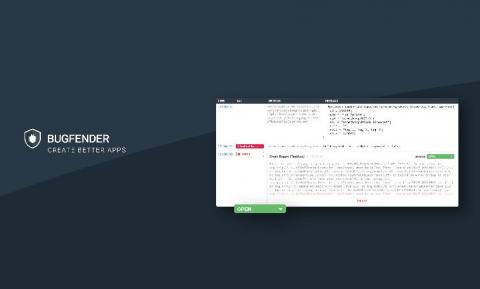Systems | Development | Analytics | API | Testing
%term
Approval workflows for Apache Kafka
Deploying an Android app
New Kafka governance: approval flows & app topology
It feels like only yesterday that we announced Lenses 3.1. The release was focused around helping developers be more productive when developing real-time data applications. Since then, our customers are onboarding new applications and new users onto their data platform at a faster rate than ever. And with more apps and users come stricter and tougher requirements for compliance and governance.
10+ Frameworks and Tools to Consider for PWA Development
From AliExpress to Forbes, Starbucks, Instagram, George, Trivago, Uber, and Medium, a vast number of top brands have switched to the PWA environment and recorded a significant rise in their ROI. Especially, in terms of faster app loading & higher customer engagement and retention rate. These brands have not just unveiled the numbers publicly, but have also encouraged others to step into the PWA development world.
Forever Free Plan From Testsigma Released!
We are happy to announce the launch of Testsigma’s freemium version!! Now Testsigma lets you create simple but efficient web automated tests easily and for free! We are offering businesses the freedom to try and experiment with the tool, without having to worry about the trial period. The free plan can help teams try out how Testsigma simplifies test automation with all that is needed to create stable, reliable, and efficient tests.
How to Improve Developer Experience by Guiding Developers with Customer Lifecycle Emails using Moesif with Hubspot or Salesforce
Making your company successful hinges on your customers being able to stand your product up, and gain value from it. When you’re using inbound marketing to drive customer acquisition, email doesn’t have to be relegated to second-class citizen status. We argue that email is one of the most powerful channels of communication between B2B companies and their customers.
How to Best Monitor Kong Performance and API Usage with the Moesif API Analytics Plugin
Kong is a highly recommended API Gateway for any team looking for a reliable and scalable way to provide APIs. Compared to more traditional players like Apigee and Mulesoft, Kong follows an open-core model and is highly modular. To best optimize your API performance and understand what changes are needed to recoup your investment, it’s recommend to set up API monitoring and analytics.
A Tour of 7 Popular Ruby Frameworks in 2020
Ruby may be over 25 years old, but it remains popular in the software community for its focus on programmer happiness. Building software with Ruby often involves leveraging one or more popular frameworks for the purpose of increasing productivity by relying on existing solutions to common problems. Ruby frameworks generally fall into two categories: web-facing frameworks and background job frameworks.
North Dakota's COVID-19 Contact Tracking App Uses Bugfender, What About Privacy?
Today, May 21st, we received an interesting email from a journalist writing for Fast Company. Apparently, a privacy-focused company audited the app Care19, North Dakota’s COVID-19 contact tracking app, and they found that an anonymous tracking ID generated by the app was sent via API to Bugfender along with other identifiers. While the journalist contacted the app developers, he also gave us the opportunity to comment.











